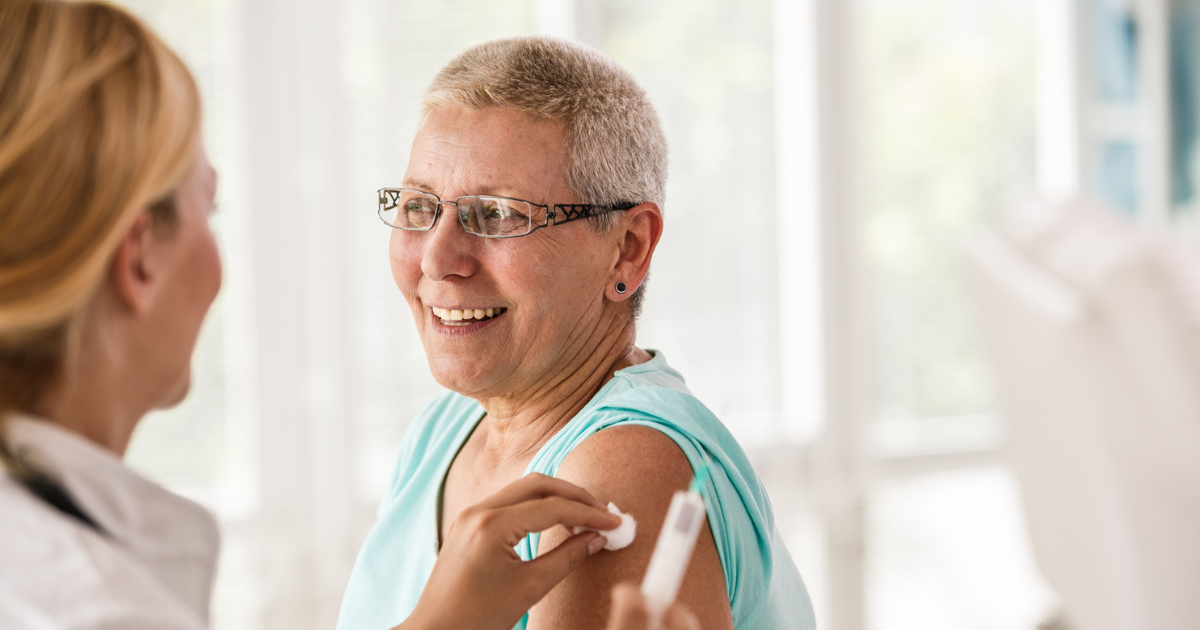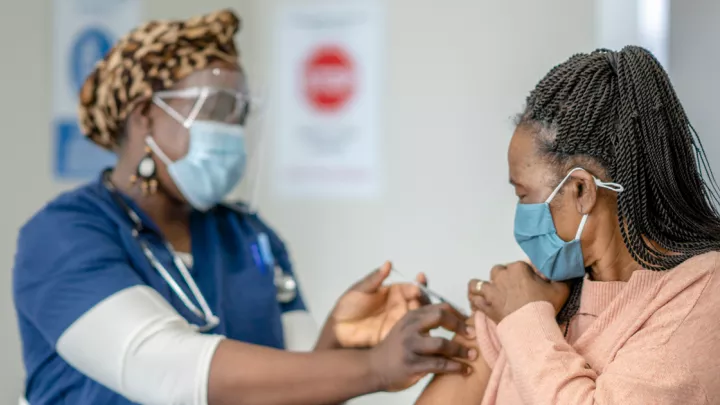Everyone 6 months and older should get an updated COVID-19 vaccine in fall 2023

With a recent uptick in COVID-19 cases and waning immunity, many people wonder if they should get a COVID-19 booster this fall.
A new vaccine is now available, and it's updated to be more effective against the currently circulating COVID-19 strains. On Sept. 12, 2023, the U.S. Centers for Disease Control and Prevention recommended everyone six months and older get an updated COVID-19 vaccine this fall.
“For people who have been trying to keep up to date on their vaccines, it’s probably been almost a year since they’ve been vaccinated,” says infectious diseases specialist Mark Rupp, MD. “So they have waning immunity and, even though COVID-19 is currently at a low simmer, it’s still here, and people need to get vaccinated.”
While the vaccine is available to everyone 6 months and older, it is especially important for people at high risk for severe disease to get vaccinated.
People are considered high risk when they:
- Are over age 65
- Have underlying heart or lung disease, obesity, diabetes, chronic liver or kidney disease or a variety of other underlying medical conditions
- Are immunocompromised
The new booster was developed using a subvariant of the omicron strain. While it’s unclear exactly how effective it will be, Dr. Rupp believes it will provide good protection against circulating variants and adds, “What we’ve seen all along is the vaccine does a good job in preventing severe illness, hospitalization and death.”
Other vaccines
With flu season approaching, you may be able to get your flu shot and the new COVID-19 booster at the same time.
“Typically, we see flu coming into the community toward the end of the calendar year, and it usually peaks in January or February,” he says. “You want to be vaccinated in mid to late October or even early November, so you’ll have your peak level of immunity as the epidemic peaks.”
A new RSV vaccine is also recommended for adults over age 60. The Centers for Disease Control (CDC) has stated that the RSV vaccine can be given with other vaccines.
“What we do know reliably is we will see activity from all of these respiratory viruses, and they can be significant and severe, particularly in high-risk people,” Dr. Rupp says. “Therefore, it behooves them to get all the protection they can.”
Taking precautions
Aside from being vaccinated, Dr. Rupp says it is important not to let your guard down regarding COVID-19 and other serious respiratory illnesses. Preventive measures, such as mask-wearing, can play an important role in staying healthy.
“I’m still that guy on the plane who is wearing a mask, and I think that’s a reasonable thing to do when you’re in crowded, low-ventilated situations,” he says. “I think it’s very reasonable to use respiratory protection, and I don’t think people should be shy or ashamed about doing that.”
Finally, stay informed about the latest developments in your area. Following guidance from health agencies, regulatory bodies and your providers will ensure you make informed health decisions.
Click here for more information on staying up to date on vaccinations from the CDC.







